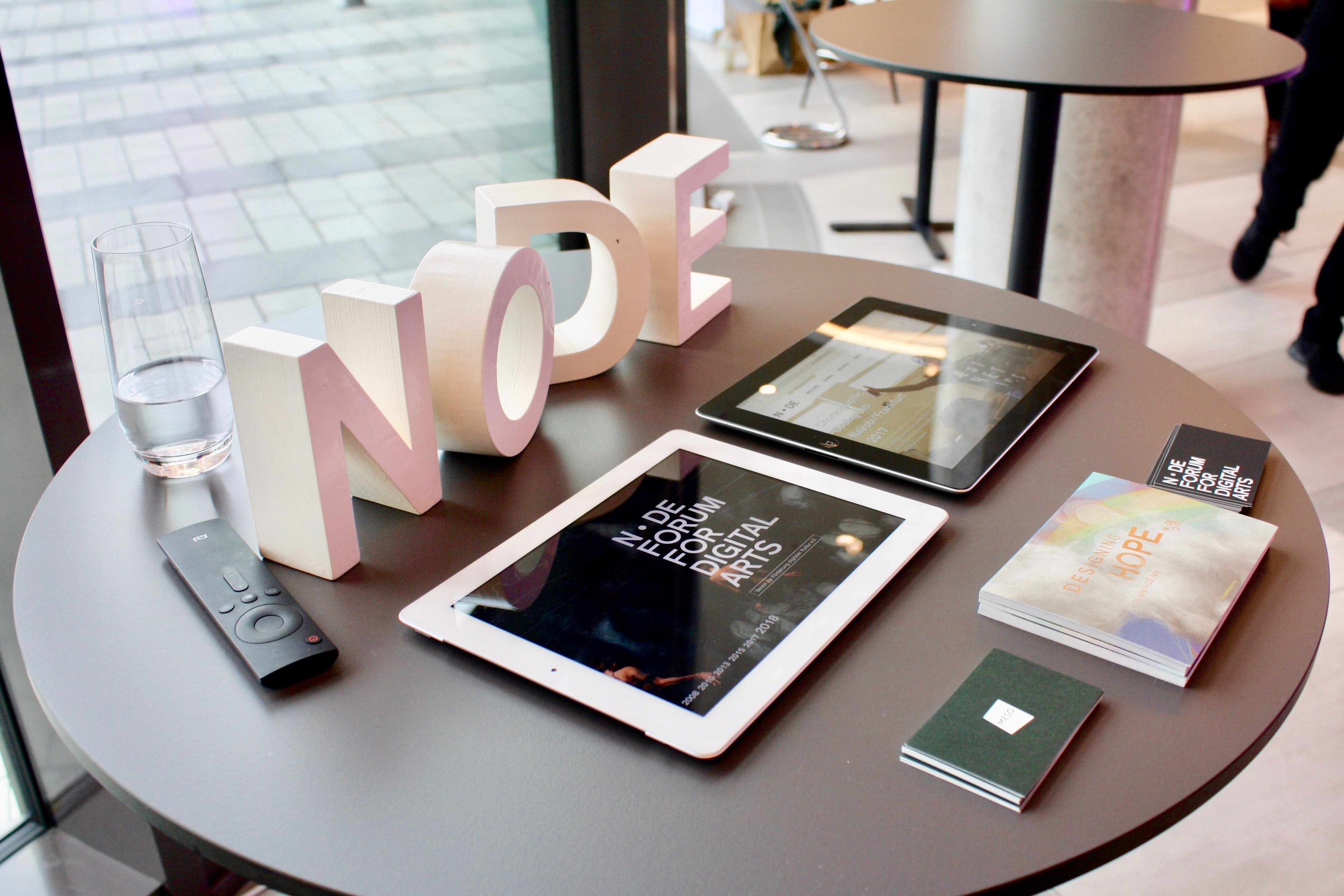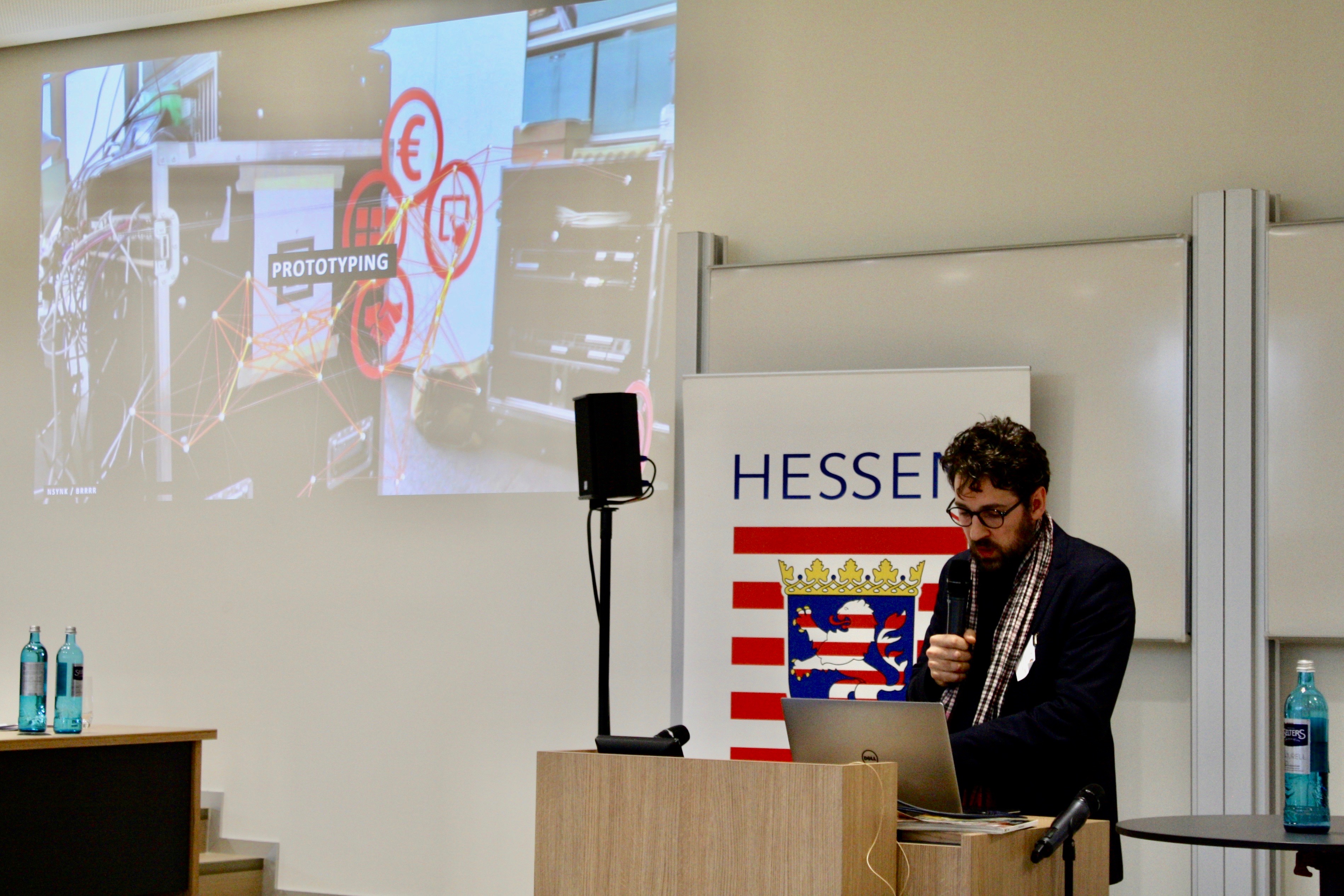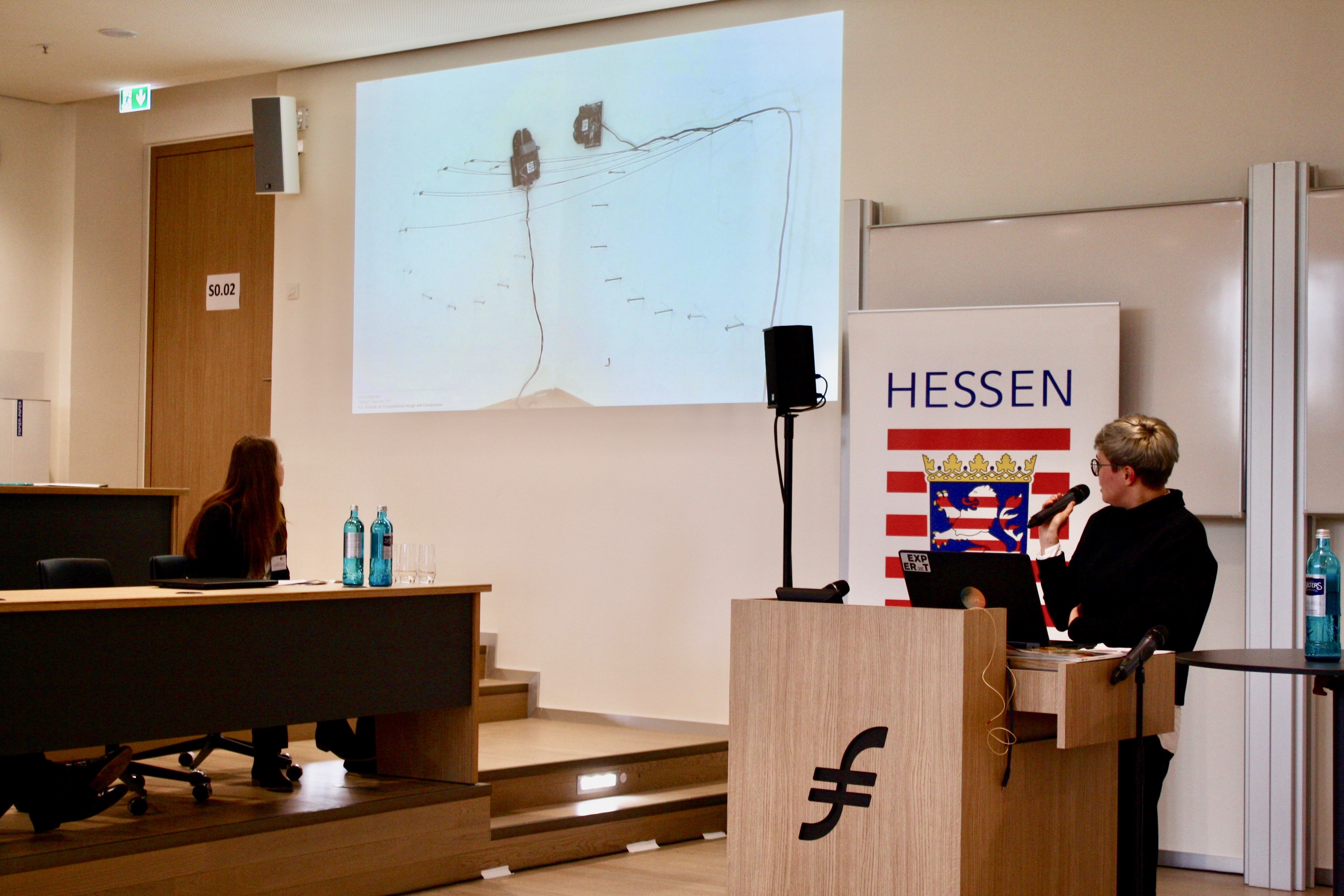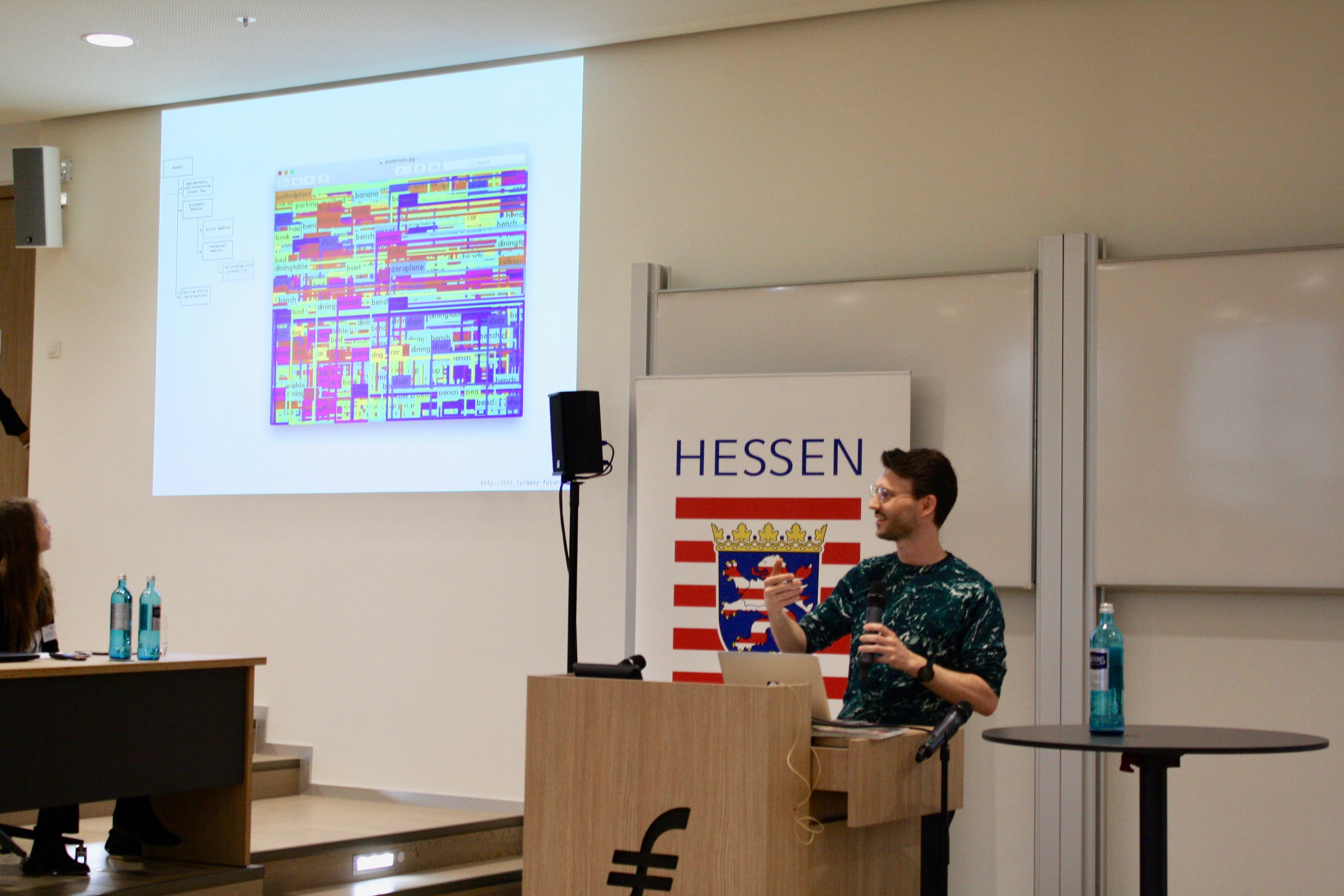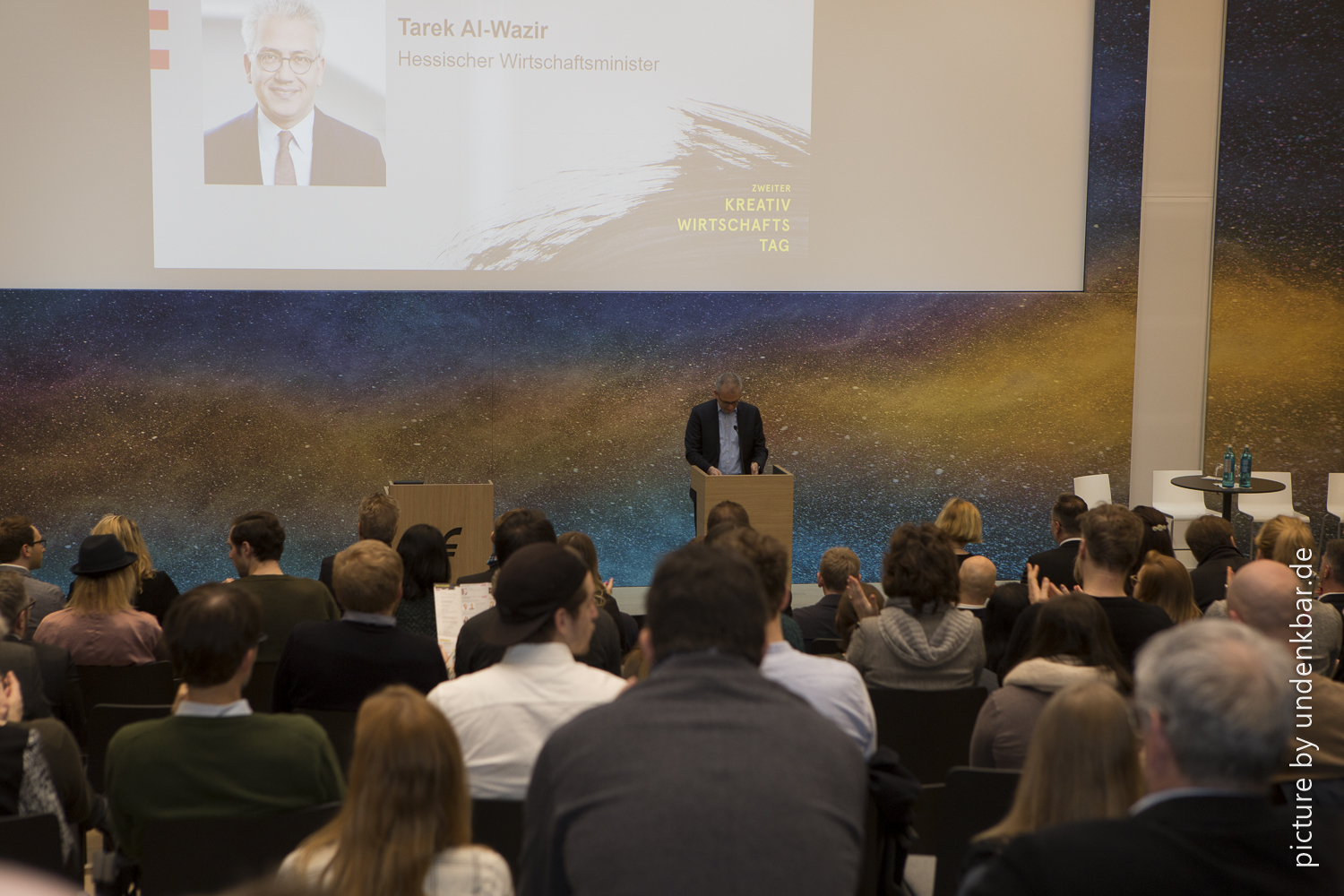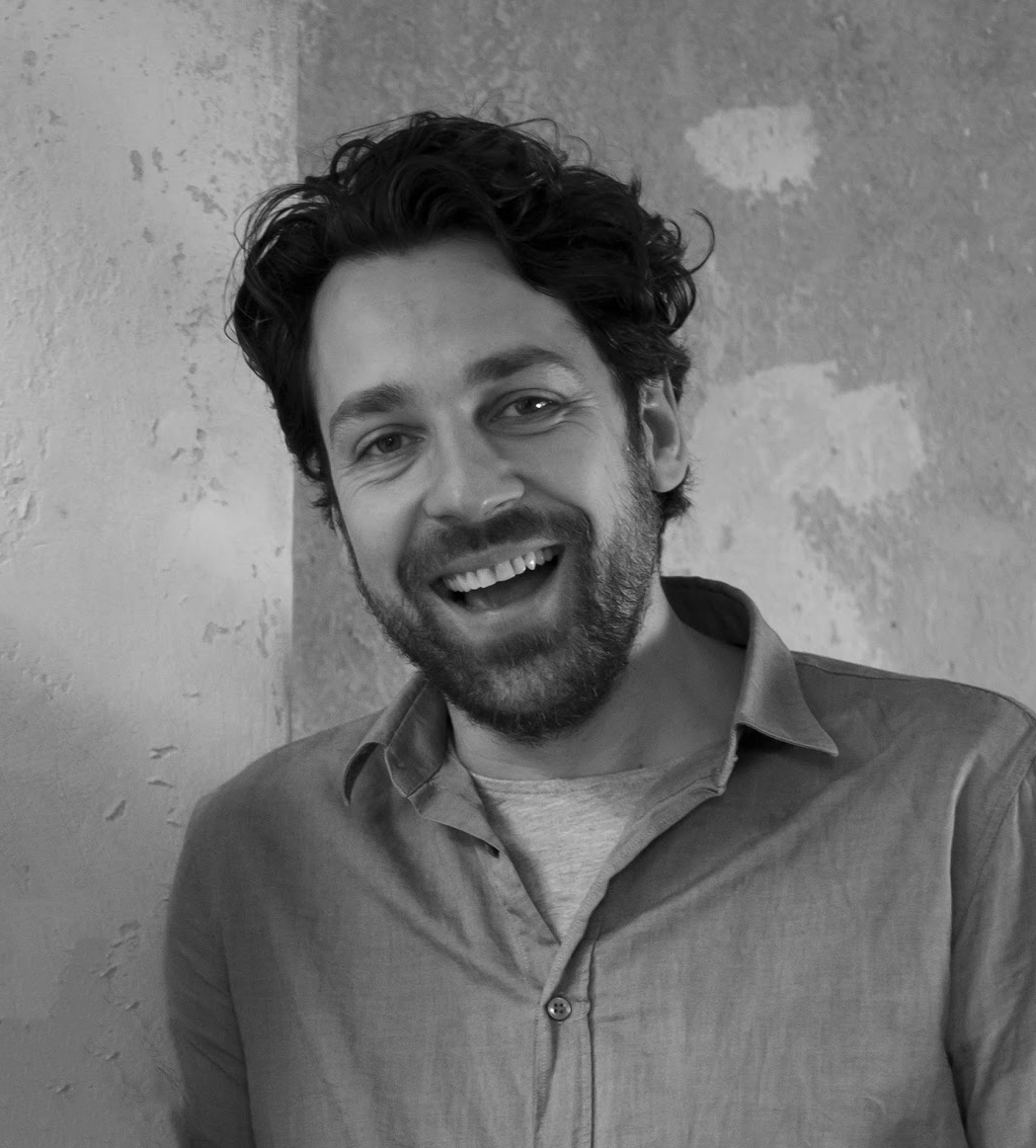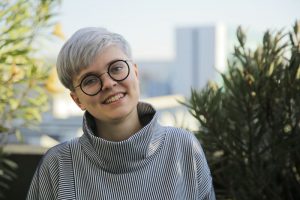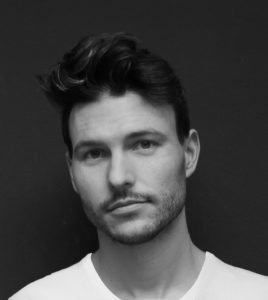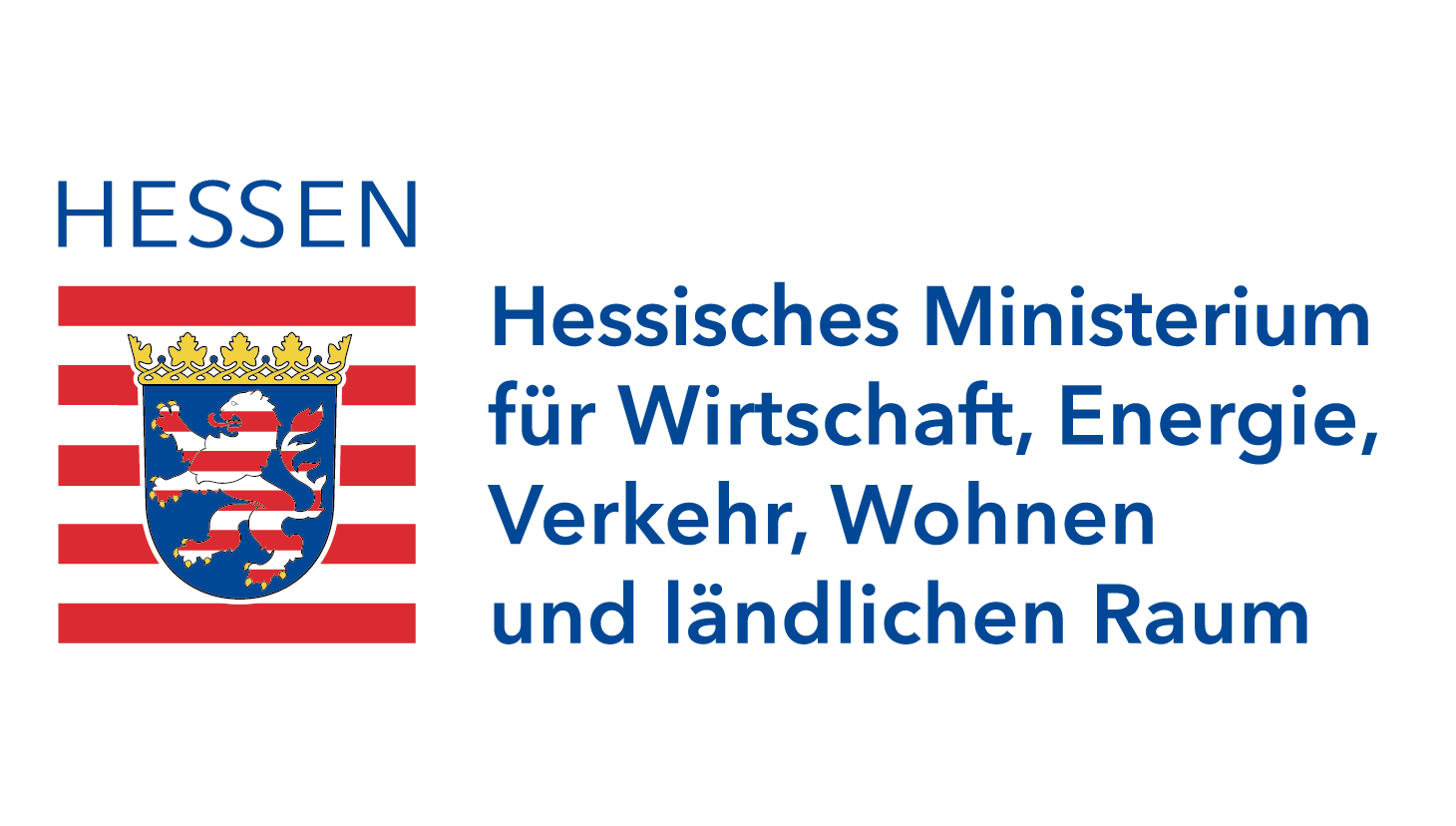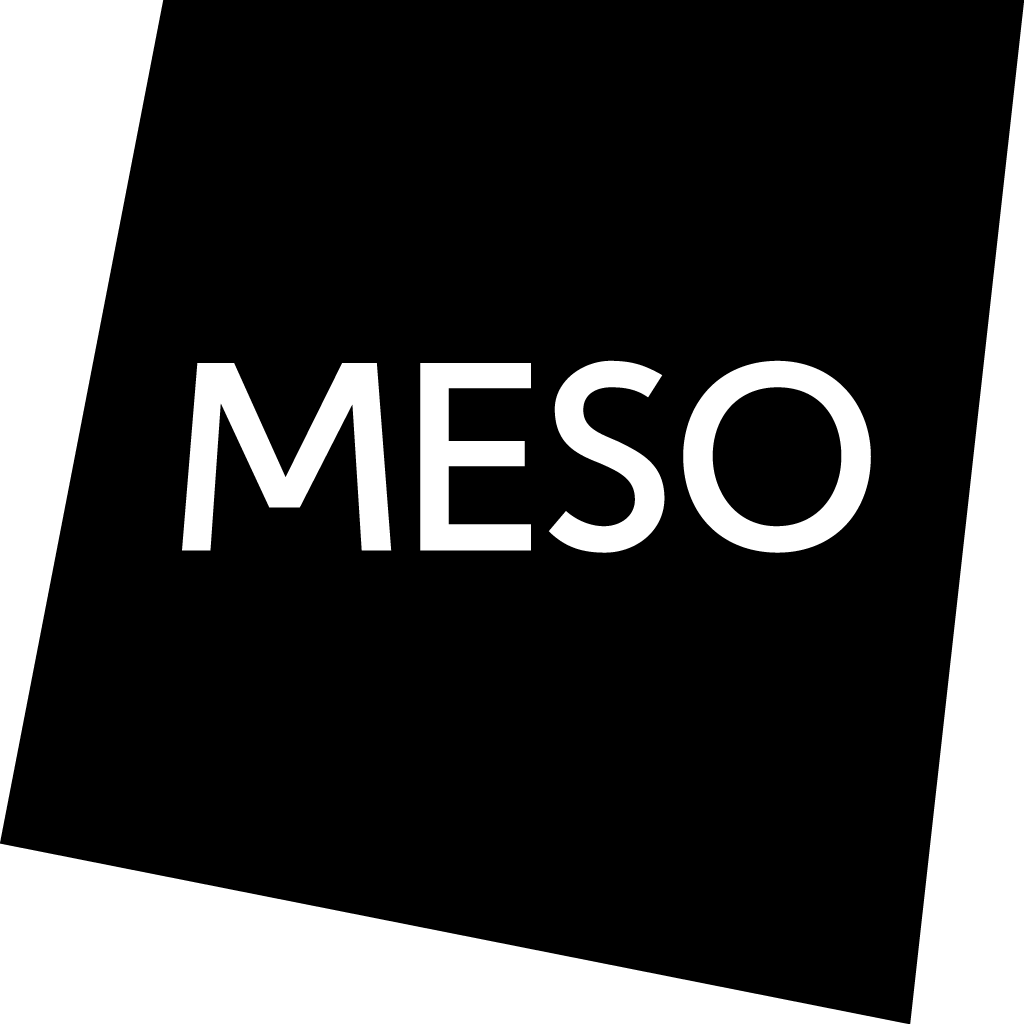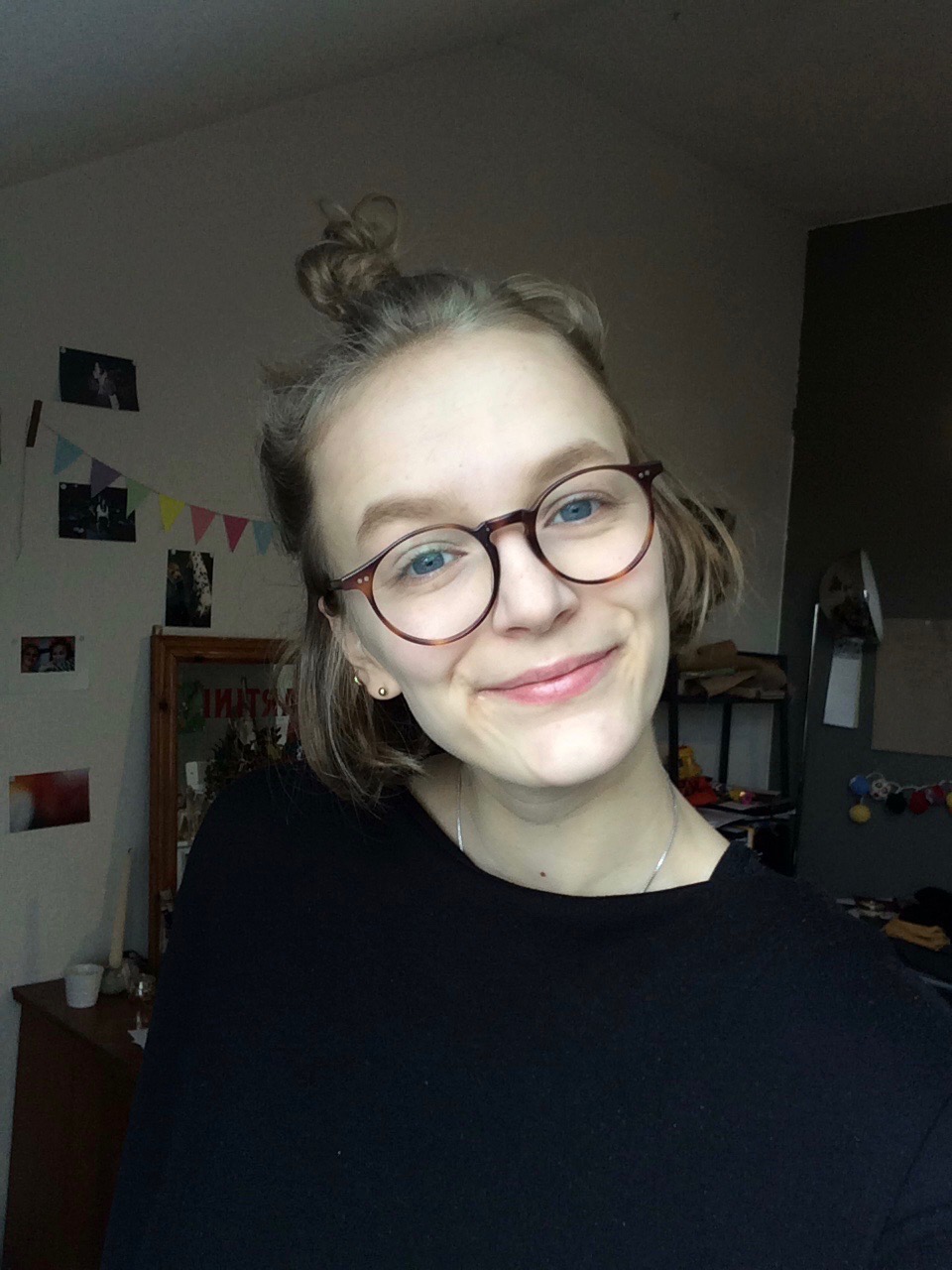Starting from this idea, we decided to showcase three young NODE-related creatives and their take on the ‘Making of: Future’ and took visitors behind the scenes of their projects and thought processes.
Our first speaker of the day, Maria Yablonina, Ph.D. candidate at the Stuttgart University Institute for Computational Design and Construction, presented her ‘collaborative robots’ that build extensive nets using existing architectural framework, reminiscent of large spiderwebs. Maria’s work on this project is ongoing.
Following Maria, David Brüll, of spoke on the importance of working to educate your user on the function of your designs. Speaking on his project with Atelier Markgraph for the Hessian heating systems developer Viessmann, David demonstrated how unveiling the invisible processes of technology helps to include audiences who normally would shy away from interacting with – e.g. – AR technologies.
